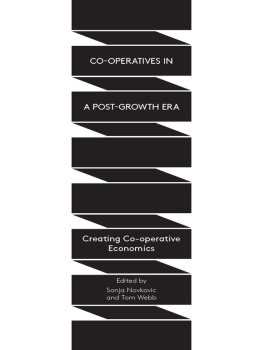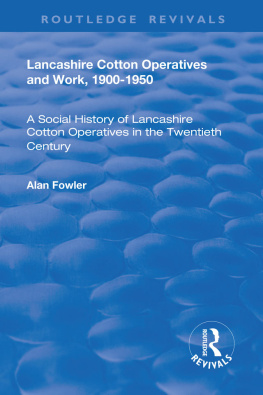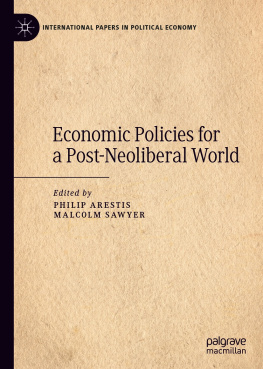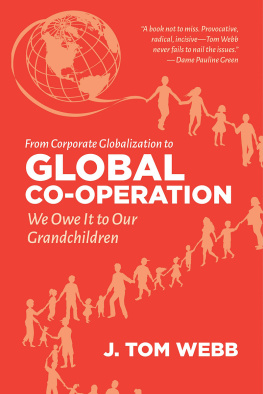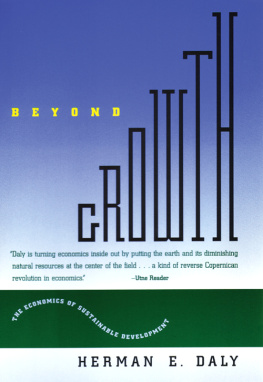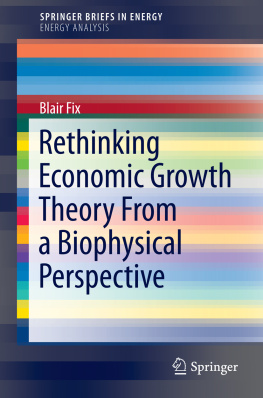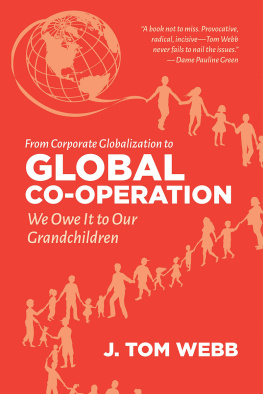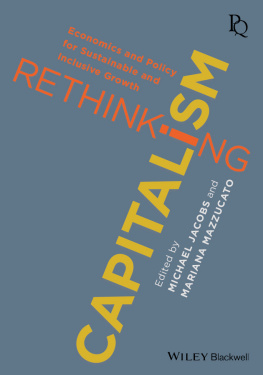
About the editors
Sonja Novkovic is a professor of economics at Saint Marys University, and academic co-director in the Co-operative Management Education programme. Currently, she is the chair of the International Co-operative Alliance Research Committee and academic co-lead of the Measuring the Co-operative Difference Research Network in collaboration with Co-operatives and Mutuals Canada.
Tom Webb is an adjunct professor at Saint Marys University School of Business and former programme manager of the masters degree in the Management of Co-operatives and Credit Unions (MMCCU).
More praise for Co-operatives in a Post-Growth Era
The timing of this book is perfect! The findings from the 2012 Imagine Conference summarize ways to create prosperity and stability in this new economic, social and environmental reality. Leading economic thinkers provide critical insights in how the co-operative enterprise model meets the growing complex global problems while building a better world. Kudos to Webb and Novkovic for making this happen. Denyse Guy, executive director, Co-operatives and Mutuals Canada
Imagine 2012 has been the silver lining behind the cloud for those who believe that co-ops are enterprises to build a better world. Jean Louis Bancel, president, Crdit Coopratif
The ideas about economics in this book will help co-operative leaders move co-operative development forward. Nelson Kuria, CEO, Co-operative Insurance Company, Kenya
A unique collection of essays that offers both theoretical arguments and practical insights into how co-operatives can provide the basis for a more socially and environmentally sustainable economy. This should be required reading for all students in business and economics, and a must read for all interested in the future of the planet. Darryl Reed, York University Canada
When markets fail, co-operatives bring needed products and services, competition and opportunity for people. Building a global co-operative economy will ensure fewer economic crises and greater food security around the world. Paul Hazen, executive director, US Overseas Cooperative Development Council
CO-OPERATIVES IN A POST-GROWTH ERA
CREATING CO-OPERATIVE ECONOMICS
edited by Sonja Novkovic and Tom Webb

Co-operatives in a Post-growth Era: Creating co-operative economics was first published in 2014 by Zed Books Ltd, 7 Cynthia Street, London N1 9JF, UK
This ebook edition was first published in 2014
www.zedbooks.co.uk
Editorial copyright Sonja Novkovic and Tom Webb 2014
Copyright in this collection Zed Books 2014
The rights of Sonja Novkovic and Tom Webb to be identified as editors of this work have been asserted by them in accordance with the Copyright, Designs and Patents Act, 1988.
Set in Monotype Plantin and FFKievit by Ewan Smith, London
Index:
Cover designed by Dougal Burgess
All rights reserved. No part of this publication may be reproduced, stored in a retrieval system or transmitted in any form or by any means, electronic, mechanical, photocopying or otherwise, without the prior permission of Zed Books Ltd.
A catalogue record for this book is available from the British Library
Library of Congress Cataloging in Publication Data available
ISBN 978-1-78360-080-9
CONTENTS
Tom Webb and Sonja Novkovic
Manfred Max-Neef
Neva Goodwin
Richard Wilkinson and Kate Pickett
William E. Rees
Peter A. Victor
Thomas Homer-Dixon
John Fullerton
Stefano Zamagni
Morris Altman
Vera Negri Zamagni
David Erdal
Stephen C. Smith and Jonathan Rothbaum
Barbara Allen
Claudia Sanchez Bajo
Sonja Novkovic and Tom Webb
TABLES AND FIGURES
INTRODUCTION: CO-OPERATIVE ECONOMICS, WHY OUR WORLD NEEDS IT
Tom Webb and Sonja Novkovic
The decision to hold a conference on co-operative economics during the International Year of Co-operatives in 2012 had its roots in the thinking about co-operatives and co-operation that spurred the creation of the Co-operative Management Education programmes in the Sobey School of Business early in the first decade of the new millennium. The impetus to create these programmes in turn was stimulated by the thinking of Sidney Pobihushchy, a long-time board member of Co-op Atlantic and a seminal co-operative thinker. Together we developed the Initiatives for Renewal, a far-reaching vision that imagined co-operatives, and Co-op Atlantic in particular, playing a leading role in economic renewal in the Atlantic Canada region. Those ideas, while ahead of their time, bear interesting similarities to the Co-operative Blueprint now being imagined globally by the International Co-operative Alliance.
Those of us excited about co-operatives found co-operatives exciting, in large measure, because of our discomfort with prevailing economic thought. The economy, for us, was about the relationships people created to provide themselves with the goods and services they needed to live meaningful lives. It was not about the narrowly measured efficiency of investor-owned business, or about growth of output, but about how well the economy met the needs of people and communities. Those needs were seen as being inclusive of a healthy environment and healthy communities in a healthy society. It seemed clear that both the state socialist and capitalist models of the twentieth century left much to be desired.
Our hope for a better economy based on the co-operative business model was founded on fundamental differences between co-operatives and the dominant investor-owned model, which has concentrated power in the hands of a wealthy few on the one hand and the bureaucratic state-owned firm on the other, where power was concentrated in the hands of a small political elite. Co-operatives are different. They spread power. The purpose of the business is different. Its purpose is to meet member and community need rather than to maximise the wealth of shareholders. The people who use a co-operative business workers or producers or consumers or small business people own the business. In setting it up as a co-operative, they buy into the ideas, values and principles of co-operation; otherwise we can assume that they would have chosen a different business model. Members or managers, several generations later, may have forgotten or not be aware of the meaning of co-operation but that is a failure of education and a loss of identity.
What sets co-operatives apart from employee stock ownership plans (ESOPs), social enterprise, or investor-owned business? Co-operatives comprise a unique form of businesses that can be found around the world. They cross ethnic, cultural, linguistic and religious differences. They cross almost every line that divides humanity. There are four key pillars of the co-operative business model that set the co-operative family of businesses apart: 1) the purpose of the business; an internationally accepted framework of both values (2) and principles (3); and 4) a founding ethic of fairness or social justice.
The co-operative model is people-centred, while the investor-owned model is wealth-centred. The co-operative manager has an obligation to meet member and community need. The investor-owned business manager has a (perceived) fiduciary responsibility to maximise shareholder value. The co-operative business purpose resonates with the human spirit with its blend and balance of individual and social needs. This is a business model that reflects the fullness of the human spirit rather than simply the acquisitive slice of individualism.
Next page
